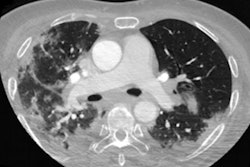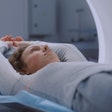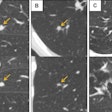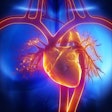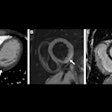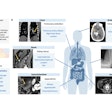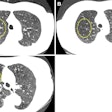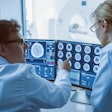
Adding coronary CT angiography (CTA) to exercise electrocardiography (ECG) testing could be an effective way to predict a patient's five-year risk of coronary disease compared to ECG alone, according to a study published June 3 in JAMA Cardiology.
The findings could help clinicians better assess their patients, wrote a team led by Dr. Trisha Singh of the University of Edinburgh in the U.K.
"Although abnormal results of exercise electrocardiography are associated with coronary revascularization and future risk of adverse coronary events, coronary [CTA] may identify additional undetected coronary artery disease and add to clinical decision-making and may be more strongly associated with future risk," Singh and colleagues wrote.
Exercise ECG has long been used to assess patients' heart disease risk, but there is some debate about its benefit in contemporary clinical practice. Singh's group sought to evaluate exercise ECG's performance and to assess whether it would improve with the addition of coronary CTA.
The study consisted of data from the Scottish Computed Tomography of the Heart (SCOT-HEART) trial and included 3,283 patients with stable angina who were evaluated between November 2010 and September 2014; this group was randomized to undergo an ECG plus coronary CTA or an ECG alone. The primary outcome was nonfatal heart attack or death from coronary heart disease at five years post evaluation.
ECG alone had a sensitivity of 39% and a specificity of 91% for identifying coronary artery disease in patients who then underwent invasive angiography. Abnormal exercise ECG results were linked to a 14.5-fold increase in undergoing coronary revascularization procedures at one-year post evaluation and a 2.6-fold increase in a nonfatal heart attack or mortality from heart disease at five years post evaluation.
However, Singh's group found that adding CTA to exercise ECG resulted in a stronger predictive association for nonfatal heart attack or mortality from heart disease at five years post evaluation -- and that this was particularly true for patients with inconclusive exercise ECG results.
"This study suggests that abnormal results of exercise ECG are associated with coronary revascularization and the future risk of adverse coronary events," the team wrote. "However, coronary CT angiography more accurately detects coronary artery disease and is more strongly associated with future risk compared with exercise ECG."
In an accompanying editorial, Dr. Pamela Douglas of Duke University School of Medicine in Durham, NC, critiqued the study, stating that the way it was conducted may not have produced accurate results and calling for more research.
"Exercise ECG has been remarkably resilient throughout years of innovation in noninvasive cardiology, and the present SCOT-HEART data suggest that it still has value," she wrote. "However, we are beginning to realize that the exercise ECG's presentation of results as either positive or negative ... significantly limits the information provided and therapeutic approaches chosen. ... Coronary [CTA], with its far more nuanced interrogation of multiple parameters ... [could] allow us to consider other aspects of coronary disease beyond stenosis."






